減貧戰爭:攜手戰貧困
英文書名:Poverty Reduction in China作者:方允仲
翻譯:David Ferguson(美國)、王明傑(原中國外文局副局長、著名翻譯家)
出版時間:2013年5月第1版
出版: 中國畫報出版社, 2013.3
國內外發行:新華書店、中國國際圖書貿易集團公司
美國華媒集團(北美)
英國常青公司
中國圖書貿易(德國)有限公司
香港和平圖書有限公司
比利時長城書店
中國國圖集團公司東京事務所
ISBN 978-7-5146-0770-3
內容簡介
貧困是人類共同的敵人,也是世界各國和國際社會面臨的挑戰。促進發展,消除貧困,實現共同富裕,是人類孜孜以求的理想。中國的減貧,在很大程度上就是解決農村的貧困問題。中國政府在自己國家,讓低於貧困線的人們脫貧、減貧,也就是讓全球接近四分之一的人脫貧,本身就是對全人類的最大貢獻。本書以豐富的文字和圖片,展示了中國在農村扶貧開發中的成就和對人類的貢獻。作者、譯者簡介
作者:方允仲,媒體人、出版策劃人。先後策劃和主持各類重點對外出版項目十多項,獲得省級以上各類新聞、出版作品獎70多項。譯者:David Ferguson(美國)、美國媒體人。王明傑,原中國外文局副局長、著名翻譯家。曾任中國翻譯家協會秘書長,中組部聯繫專家,在中譯英領域有卓越成就。
試讀:
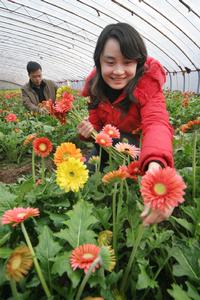
But this is not a true picture of Chinese people.
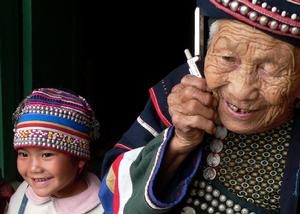
As official figures are often contradictory, and to ordinary people statistics like the consumer price index are often inconsistent with their personal experience, such figures do not always carry much weight among the populace. But the leaders of the State are clear about their position. AsPresident Hu Jintao said, “China's total economic output is now one of the largest in the world. But on the other hand, China still lags behind more than 100 countries in terms of per capita GDP, and it remains the biggest developing country in the world. With one fifth of the world's population, and given the disparity between the urban and rural areas and among different regions and the imbalances in economic and social development, China still faces many difficulties and has a long way to go before it can achieve modernization.” This is an accurate description of China’s present situation. In formulating policies, such conditions must be the base of any decisions.
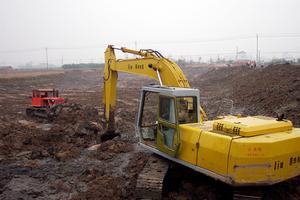
Poverty is the common enemy of mankind. It is also a challenge facing each and every nation, as well as the international community. To promote economic development, eliminate poverty and achieve common prosperity are ideals that mankind constantly pursues. To date, China's poverty reduction program has to a large extent been limited to addressing the poverty problem in rural areas. The Chinese government’s efforts to lift people out of poverty and to reduce the number of people living below the poverty line in its own country are part of a greater contribution to mankind’s wider struggle.
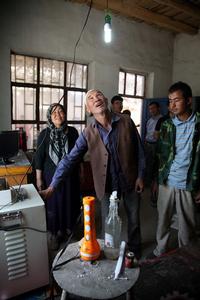
There are many such stories in China. It is clear that a very large number of people make a contribution to the country’s efforts to reduce poverty. They could be anyone - government officials, or ordinary people working in public institutions, SOEs, or private companies. They might be well-off or quite poor themselves. However, they quietly do what they think right and join in the effort to eliminate poverty in China’s rural areas. I know that some entrepreneurs have contributed several hundred million Renminbi (RMB). Others do what they can, trying their best to help the poverty reduction effort.
Another friend of mine from Hunan went twice to Tibet to help develop the local economy. He left his family and spent a total of six years there. He recently completed his mission and returned to his hometown. Unfortunately he had contracted several illnesses and was in poor health. His children were unable to recognize him.
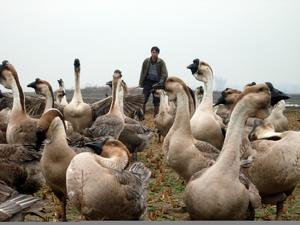
The progress made by China in its development-oriented poverty reduction effort has also had an impact on the global poverty reduction process. According toChina’s Progress towards the Millennium Development Goals,a report prepared by the Ministry of Foreign Affairs of the People’s Republic of China and the UN Country Team in China, China is one of the first group of countries to achieve the target set in the MDG report of halving its numbers of poor people, as measured both by the Chinese government’s own and the international poverty reduction criteria. Between 1990 and 2005, the number of people throughout the world whose per capita consumption capacity is less than one US dollar a day was reduced to 1.4 billion, i.e. a total reduction of 418 million, down by 23%.
Naturally, the Chinese people also try all sorts of ways to help reduce the proportion of the poor in other countries. According to official statistics, from 2004 to 2009, China’s foreign aid grew by 29%. By the end of 2009, China had provided an aggregate of RMB 256 billion to foreign countries, of which RMB106 billion was provided free of conditions. China has provided aid to 161 countries and more than 30 international and regional organizations. Despite the fact that the Chinese people are not rich and their average income is still low, they nevertheless fulfill their international commitments.
In writing this book, I have conducted many interviews and fact-finding trips, and collected a large number of photos and material from my fellow journalists with the approval of the media agencies they serve. I have also used public information issued by the government and news releases from news agencies. I would like to express my gratitude to those who have provided me with information. I hope my book, including those photos, will help readers to gain a better understanding of the efforts that the Chinese people have made in combating poverty, and to get to know those people who have made the greatest contributions to the fight against poverty.
